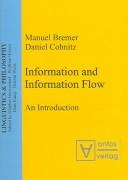| Listing 1 - 7 of 7 |
Sort by
|
Book
ISBN: 1844650375 9781844650378 9781844650361 1844650367 9781315712178 9781317494133 9781317494140 Year: 2006 Publisher: Chesham Acumen
Abstract | Keywords | Export | Availability | Bookmark
 Loading...
Loading...Choose an application
- Reference Manager
- EndNote
- RefWorks (Direct export to RefWorks)
Goodman, Nelson --- Goodman, Nelson. --- Goodman, Henry Nelson
Book
ISBN: 1317494148 1315712172 1317494156 9781800653041 1282534718 9786612534713 1844653048 9781844653041 9781317494157 9781317494140 9781315712178 9781282534711 6612534710 1844650367 9781844650361 1844650375 9781844650378 Year: 2006 Publisher: Chesham, Bucks Acumen
Abstract | Keywords | Export | Availability | Bookmark
 Loading...
Loading...Choose an application
- Reference Manager
- EndNote
- RefWorks (Direct export to RefWorks)
Nelson Goodman's distinctive contributions to such diverse areas of philosophy as epistemology, metaphysics, semiotics, logic, philosophy of language, science, and art, and his engagement with the work of Rudolf Carnap and other prominent figures in the analytic tradition, places him at the forefront of the history and development of Anglo-American philosophy in the twentieth century. Although recently the significance of Goodman's work has not been sufficiently appreciated, Daniel Cohnitz and Marcus Rossberg show that much of it is of relevance for contemporary philosophy. This book, the first comprehensive introduction to Goodman's philosophy, examines and assesses his contribution. The book begins with Goodman's New Riddle of Induction, the so-called "Grue"-paradox, which exemplifies his way of dealing with philosophical problems, and thus provides an introduction to Goodman's thought. It then covers his central work, The Structure of Appearance, as well as his philosophy of art, philosophy of language, his conventionalism, constructionalism and relativism. The technical apparatus that is required to understand Goodman's work, in particular his mereology and theory of symbols, is introduced in an accessible manner in the course of the book. The final chapter locates Goodman's position in contemporary debates and discusses recent criticisms.
Digital
ISBN: 9783110323603 9783110323054 Year: 2013 Publisher: Berlin ;; Boston De Gruyter
Abstract | Keywords | Export | Availability | Bookmark
 Loading...
Loading...Choose an application
- Reference Manager
- EndNote
- RefWorks (Direct export to RefWorks)
Book
ISBN: 9781107527720 9781107110939 1107110939 1107527724 Year: 2019 Publisher: Cambridge: Cambridge university press,
Abstract | Keywords | Export | Availability | Bookmark
 Loading...
Loading...Choose an application
- Reference Manager
- EndNote
- RefWorks (Direct export to RefWorks)
Philosophy of logic is a fundamental part of philosophical study, and one which is increasingly recognized as being immensely important in relation to many issues in metaphysics, metametaphysics, epistemology, philosophy of mathematics, and philosophy of language. This textbook provides a comprehensive and accessible introduction to topics including the objectivity of logical inference rules and its relevance in discussions of epistemological relativism, the revived interest in logical pluralism, the question of logic's metaphysical neutrality, and the demarcation between logic and mathematics. Chapters in the book cover the state of the art in contemporary philosophy of logic, and allow students to understand the philosophical relevance of these debates without having to contend with complex technical arguments. This will be a major new resource for students working on logic, as well as for readers seeking a better understanding of philosophy of logic in its wider context. Presents up-to-date and accessible discussion of a foundational part of philosophical study, and of its importance for related subdisciplines. Provides an overview of the connections between topics including metaphysics of logic, logical pluralism, and the meaning of logical constants. Allows students to understand the relevance of philosophical issues without having to wade through complex technical jargon.
Logic --- Philosophy --- Reference books --- Philosophy - Reference books

ISBN: 3110323605 9783110323603 3937202471 9783937202471 9783110323054 3110323052 1299723187 Year: 2004 Volume: v. 3 Publisher: Frankfurt Piscataway, NJ Ontos Verlag Transaction Books [distributor]
Abstract | Keywords | Export | Availability | Bookmark
 Loading...
Loading...Choose an application
- Reference Manager
- EndNote
- RefWorks (Direct export to RefWorks)
This book is conceived as an introductory text into the theory of syntactic and semantic information, and information flow. Syntactic information theory is concerned with the information contained in the very fact that some signal has a non-random structure. Semantic information theory is concerned with the meaning or information content of messages and the like. The theory of information flow is concerned with deriving some piece of information from another. The main part will take us to situation semantics as a foundation of modern approaches in information theory. We give a brief overview of the background theory and then explain the concepts of information, information architecture and information flow from that perspective.
Freedom of information. --- Freedom of information --- Information, Freedom of --- Liberty of information --- Right to know --- Civil rights --- Freedom of speech --- Intellectual freedom --- Telecommunication --- Law and legislation
Digital

ISBN: 9783110324648 9783110324396 Year: 2013 Publisher: Berlin ;; Boston De Gruyter
Abstract | Keywords | Export | Availability | Bookmark
 Loading...
Loading...Choose an application
- Reference Manager
- EndNote
- RefWorks (Direct export to RefWorks)
Digital

ISBN: 9783110323627 9783110323061 Year: 2013 Publisher: Berlin ;; Boston De Gruyter
Abstract | Keywords | Export | Availability | Bookmark
 Loading...
Loading...Choose an application
- Reference Manager
- EndNote
- RefWorks (Direct export to RefWorks)
| Listing 1 - 7 of 7 |
Sort by
|

 Search
Search Feedback
Feedback About UniCat
About UniCat  Help
Help News
News